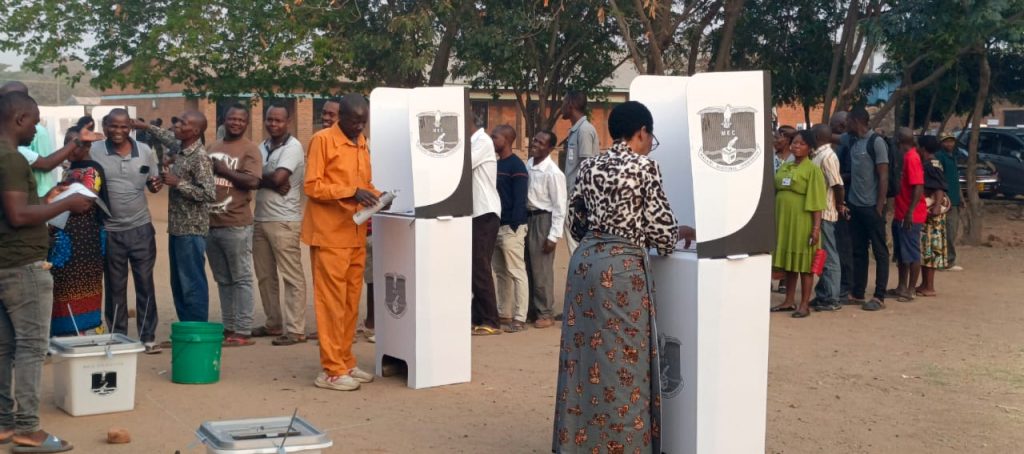MSE non-responsive to election fever
The 16-counter Malawi Stock Exchange (MSE) has remained unresponsive to election fever, sustaining robust performance amid slowdown gripping the broader business landscape.
Market analysts interpret this steadiness as an indicator that the market is not hypersensitive to immediate environmental shifts, suggesting a level of stability and investor confidence.

This follows observations that despite operating at a time political environment is tense, the local bourse registered 2.1 percent return on index between last Friday and Wednesday this week, a day after Malawians voted.
The market report shows that main index which closed at 550 143.68 points on September 11, gained 11 055.10 points to 561 198.78 points on Monday September 15 and added further 500 points during a post-election trading to close at 561 867.54 points on Wednesday, representing a 2.1 percent return on investment.
The rally was mainly driven by share price gains in eight counters led by National Investment Trust plc, whose share price jumped by 14 percent from K1 922 to K2 210.18 per share. FMB Capital Holdings increased from K1 758.42 to K1 899.97, an eight percent increase and FDH Bank plc share price jumped by 6.3 percent from K599.99 to K637.94 while TNM increased from K34.90 to K34.99, offsetting share price losses in Standard Bank plc, Nico Holdings plc, Airtel Malawi plc and NBS Bank plc.
The total market capitalisation has since jumped two percent during the period from K29.9 trillion to K30.5 trillion, cementing the fact that the market has not been affected by election-induced fever, according to analysts.
In an interview yesterday, market analyst and financial expert Brian Kampanje said elections impact could be seen later, describing the market as a ‘weak form market efficiency’ because investors do not react to the current developments in real-time.
He said: “The impact of the election might be known in the near future. The focus of wealth creation through share market price capital gains compel the institutional investors to hold on to their shares thereby stabilising the local bourse whenever there are temporary shocks.”
Stock market investor Purity Chitalo said the MSE’s resilience to political environment shocks is due to its alignment with macroeconomic fundamentals as it mostly reacts to inflation and interest rates movements.
He said: “Historically, in Malawi, the elections tend not to generate immediate large drops or surges in share prices because macroeconomic issues dominate investors focus.
“The lack of a strong immediate market reaction doesn’t mean that there’s zero risk. The market tends to respond from Inflation and interest rates aspects and much of the concern is for the long term not an immediate election shock.”
Meanwhile, Stockbrokers Malawi Limited equity investment analyst Kondwani Makwakwa urged investors to remain vigilant and be in touche with their financial advisors to timely respond to policy changes that might affect macroeconomic environment post elections.
“We have had elections in the past and noted that they do not have an immediate impact on the MSE. This suggests that participants are focusing more on fundamentals and company performance rather than political noise; hence, elections have not yet disrupted sentiment,” he said.
Makwakwa said the impact usually comes depending on the macroeconomic policies that followed or were implemented after the election.
“Therefore, it is always important for investors to follow developments in the market and keep in touch with their financial advisors for guidance,” he said.
MSE chief executive officer John Kamanga said the market has exhibited resilience to both internal and external shocks before and this ensures that investors value is guaranteed.
He said these achievements highlight the strength, resilience and potential of the country’s capital market as a platform for creating sustainable wealth and fostering economic growth.
MSE was established in March 1995 and opened for business on November 11 1996 with National Insurance Company of Malawi Limited, now Nico Holdings plc, as the first counter to list.





